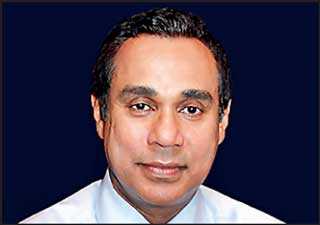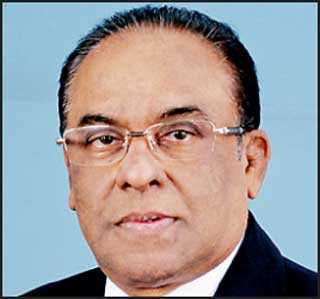Monday Feb 23, 2026
Monday Feb 23, 2026
Monday, 16 March 2020 00:18 - - {{hitsCtrl.values.hits}}
By Charumini
de Silva
Worst hit by the novel coronavirus COVID-19, the tourism industry is fearing a cash-flow crisis leading to non-payment of salaries for employees and loss of service charge, with some anticipating possible temporary closure of hotels.
 |
The Hotels Associations of Sri Lanka (THASL) President Sanath Ukwatte |
 |
Colombo City Hotels Association (CCHA) President M. Shanthikumar |
Travel bans and restrictions locally and globally have not only disrupted leisure travel, but business trips, forcing city hotels to report low occupancy of 20-25% at present, whilst at the resorts it is well below 50%.
Whilst backing the urgent measures taken by the Government to contain the spread of COVID-19, and taking all precautionary steps as well in their hotels to safeguard guests and employees, the viability of the sector is increasingly at risk too, according to tourism industry leaders. “Business for the next few weeks and months looks very bleak. Further drop in occupancy levels as well as food and beverage revenue will severely impact cash flow for hotels and other leisure establishments. Our main concern is the payment of salaries for the permanent staff,” The Hotels Associations of Sri Lanka (THASL) President Sanath Ukwatte told the Daily FT.
“The industry is facing its worst crisis, threatening service charge and salaries as well as job security,” added Colombo City Hotels Association (CCHA) President M. Shanthikumar.
The members of the two associations are to meet separately later this week to take stock of the ever-changing situation caused by the COVID-19 pandemic and make necessary recommendations to the Government. In the event of zero occupancy and cancellation of local functions, some smaller hotels are likely to temporarily close down, which could jeopardise employment.
Request to the Government to extend financial support to pay salaries of permanent staff is one likely recommendation, the Daily FT learns. Previously the industry has urged for the extension of the debt moratorium by a minimum of one more year or a maximum of two years.
The current moratorium ends in two weeks. When THASL met with Prime Minister and Finance Minister Mahinda Rajapaksa last week he had verbally assured support. It is likely that the debt moratorium, originally given to manage the crisis following the April 2019 Easter Sunday setback, will be extended till December 2020 and reconsidered thereafter for further extension till 2021.
Shanthikumar said that hotels are flexible in entertaining cancellations as well as considering refunding the full amount of hotel stay bookings. He was of the opinion that online booking engines too must follow suit, to give relief for those opting to put off planned visits to Sri Lanka due to travel bans and restrictions.
Partly due to a spate of new measures daily and lack of prior notice, the few arriving tourists are being inconvenienced, according to the travel trade. They said that since overall numbers are relatively less, the authorities at the Bandaranaike International Airport could better handle the situation to ensure hassle-free entry following effective screening.
Despite many preventive measures taken, the hotels are also facing the problem of staff reluctant to report to work due to fears of COVID-19, whilst another complaint is tourists who are already in Sri Lanka are being shunned by the public and three-wheel and other drivers.
With Europe now becoming the epicentre of COVID-19, the industry is concerned over future bookings from the region, which accounts for 60% of tourist arrivals to Sri Lanka.
Some industry experts said clear assessment of risks, followed by well-conceived effective preventive measures, as opposed to haphazard moves, must be clearly communicated to all to ensure restoration of visitor confidence and safety if the industry is to benefit from Sri Lanka’s advantage of relatively numbers of COVID-19 cases.
As a direct result of COVID-19, tourist arrivals in February declined by 17% to 207,507. Cumulative tourist arrivals in the first two months of the year fell 12% to 435,941.
Following instruction from the Health Authorities, the Government has banned arrivals from 13 countries: Korea, Iran, Italy, France, Spain, Germany, Switzerland, Denmark, Netherlands, Sweden, Austria, Qatar and Bahrain.
